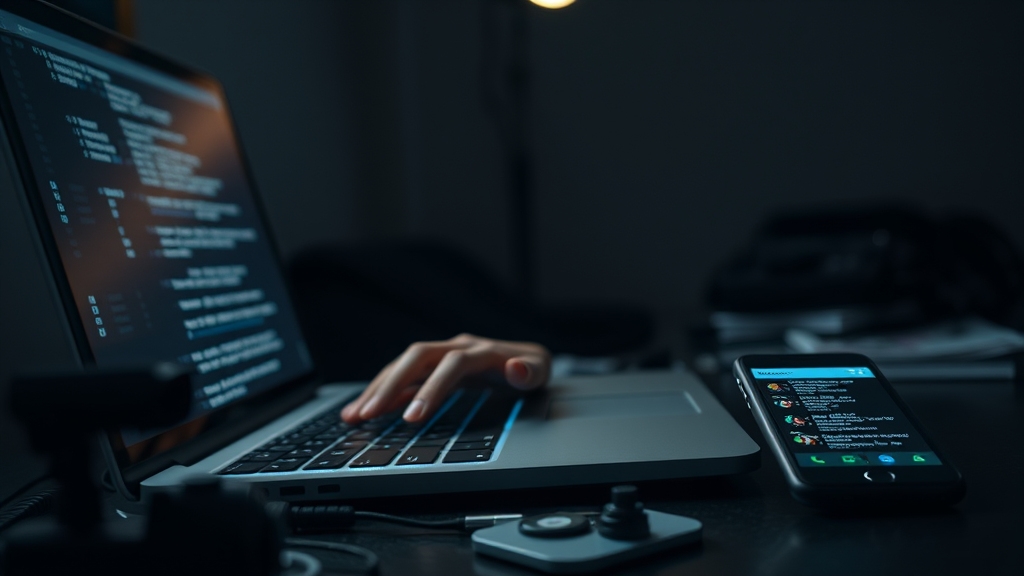Using digital spying to catch a cheater raises serious ethical and legal questions. It’s often illegal to access someone’s private messages, calls, or location without permission, which can lead to legal trouble or damage trust in your relationship. Instead, consider open communication or counseling, as they’re safer and more respectful options. Keep exploring to discover more about the risks and alternatives involved in digital surveillance and how to handle trust issues responsibly.
Key Takeaways
- Using technology to spy on someone without consent often violates privacy laws and can lead to legal consequences.
- Ethical concerns arise as digital spying can erode trust and damage personal relationships.
- Open communication and counseling are safer, more respectful alternatives to covert surveillance.
- Laws regarding digital monitoring vary; understanding local regulations is crucial before attempting any spying.
- Relying on spying may cause emotional harm and should be carefully weighed against potential legal and moral risks.

In today’s digital age, many people consider using technology to catch a cheating partner, but the decision isn’t as straightforward as it seems. While it might seem tempting to use phone tracking, spyware, or social media monitoring to uncover infidelity, you need to weigh the potential consequences carefully. One of the main issues revolves around privacy concerns—both yours and your partner’s. Accessing someone’s private messages, call logs, or location data without their consent invades their personal space and can lead to serious trust issues once the truth comes out. It’s easy to justify spying as a way to seek honesty, but crossing those boundaries raises ethical implications that can tarnish your integrity and damage your relationship further.
Using technology to catch a cheating partner raises privacy concerns and can damage trust and integrity.
Using technology to spy on your partner often involves surveillance methods that can be legally questionable, depending on where you live. In many jurisdictions, secretly monitoring someone’s device or online activity without their permission is illegal and can result in criminal charges or civil lawsuits. Even if your partner consents to some form of monitoring, there’s a fine line between transparency and invasion of privacy. It’s crucial to understand the legal landscape before proceeding; otherwise, you risk legal repercussions that can be more damaging than the suspected infidelity itself. Additionally, understanding privacy laws related to digital surveillance can help you make more informed decisions.
Beyond legality, think about the ethical side of things. Is it right to invade someone’s privacy to uncover the truth? While your emotions might push you to seek proof, consider whether spying aligns with your moral values. Trust is the foundation of any healthy relationship, and resorting to digital espionage can erode that trust even more. If you find yourself feeling compelled to spy, it might be a sign that open communication could be a better approach. Addressing concerns directly, rather than covertly, often leads to more meaningful resolution and preserves respect between partners. Moreover, employing debit card security measures can help protect your financial information from digital threats, emphasizing the importance of safeguarding personal data.
Furthermore, using tech to catch a cheating partner can backfire emotionally. Discovering infidelity through spying can create feelings of betrayal and resentment, not only toward your partner but also toward yourself for crossing ethical boundaries. It’s important to recognize that no matter how justified you feel, invading someone’s privacy can have lasting repercussions that extend beyond the immediate issue. Remember that digital surveillance often involves complex legal and ethical considerations that can be overlooked in the heat of suspicion. The potential for technological misuse underscores the need to consider alternative, more transparent methods of resolving doubts. Instead, consider seeking counseling or honest dialogue as safer, more respectful ways to handle your suspicions. Knowing the legal implications of digital spying can help prevent unintended consequences that could harm your future.
Frequently Asked Questions
Can Digital Spying Damage My Relationship Beyond Trust Issues?
You might think digital spying will help, but it can cause emotional fallout and trust erosion in your relationship. Even if you find proof, it may deepen wounds, making it harder to rebuild trust. You could end up damaging your connection beyond repair, leading to long-term emotional pain. Consider open communication first; spying often complicates issues and can harm your relationship more than you realize.
What Are the Long-Term Emotional Consequences of Spying?
You might think spying will give you peace of mind, but it can lead to long-term emotional trauma and strain your mental health. Constant suspicion and invasion of privacy can cause anxiety, depression, and trust issues that linger even after the spying stops. Over time, these emotional scars can damage your relationship, making it harder to rebuild trust. So, consider healthier ways to address your concerns without risking lasting emotional harm.
Are There Safer, Legal Alternatives to Digital Spying?
Imagine walking into a cozy café, feeling safe and confident. That’s what legal options and privacy safeguards offer—you can address concerns without risking legal trouble or damaging trust. Instead of digital spying, you can seek couples counseling, have honest conversations, or consult a mediator. These safer, legal alternatives help protect your relationship and privacy, allowing you to address issues constructively while respecting boundaries and ensuring everyone’s rights are upheld.
How Can I Protect My Own Digital Privacy From Being Spied On?
To protect your digital privacy, you should stay vigilant against spyware prevention threats. Use strong, unique passwords for each account and enable two-factor authentication. Regularly update your devices and apps to patch security vulnerabilities. Install reputable security software and avoid clicking on suspicious links or downloads. Be cautious about sharing personal info online. These steps help safeguard your digital privacy and prevent unauthorized spying, ensuring your personal data stays secure.
Does Using Spy Tech Violate Workplace or School Policies?
You might wonder if using spy tech violates workplace or school policies. Generally, it can breach employee privacy and violate school rules, especially if you’re monitoring someone without their consent. Many workplaces and schools have strict policies against covert surveillance. Before using any spy tech, check these policies carefully. Violating them could lead to disciplinary action or legal issues, so always prioritize respecting privacy laws and institutional guidelines.
Conclusion
So, next time you’re tempted to don your digital detective hat, remember: spying might seem glamorous until you realize you’re just another episode of “Caught in the Act.” Sure, catching a cheater with tech feels like a clever plot twist, but legality and ethics are the real plot holes. Maybe it’s time to invest in trust instead of tracking—after all, some mysteries are better left unsolved, and some secrets are best kept, well, secret.









